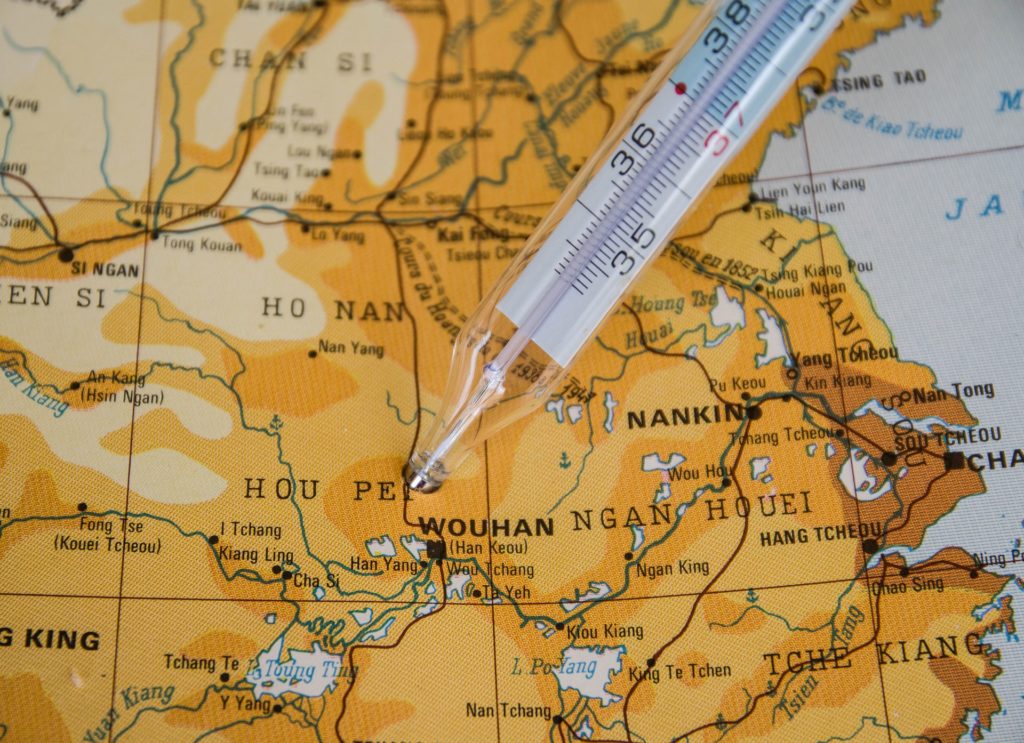
Wuhan
“Number of COVID-19 infections and deaths in the US could be as high as 65 million and 900,000 respectively”
Beijing: China has charged that the World Health Organization (WHO) plan for the second phase of studies into the origins of COVID-19 was political and that is why it refused it. Accusing the US of practicing “origin-tracing terrorism”, Beijing claimed that ever since its previous administration coined the term “Chinese virus”, the US has not stopped trying to sell stories that stigmatize China. “It attempts to link the origin of the virus with China and even Asian countries as a group, which has caused rising anti-Asian sentiment in the US and some other countries in the West, where many people of Asian descent fear discrimination, oppression and even physical threat,” Zhao Lijian, Chinese Foreign Ministry Spokesperson, said today.
China demanded WHO experts to conduct investigations in the US since Washington hasn’t taken any investigative action in the face of waves of suspicions surrounding containment breaches from the biological laboratory at Fort Detrick and the clusters of unexplained cases of pneumonia in Maryland in 2019. “To date, over 18 million Chinese netizens have signed an open letter calling on the WHO to investigate Fort Detrick. If the US truly intends to support studies of origins, then it should respond to the call, demonstrate its openness and transparency, and let WHO experts conduct investigations in the US,” Lijian said.
China also accused the US of not only playing “dirty tricks on the scientific community, stifling the righteous voice of scientists, subjecting many outspoken scientists to verbal abuse and threat of physical assaults”, but also hiding the COVID-19 death figures there. Citing a research by the University of Washington, Lijian claimed it suggested that the number of COVID-19 infections and deaths in the US could be as high as 65 million and 900,000 respectively, far higher than official statistics.

“China agrees that studies into origins of COVID-19 should be evidence-based, expert-led, and free from interference. But that is not what the US has been doing,” Lijian said. He claimed that while calling for evidence-based origin studies, the US has falsely accused China of a lab leak and fabricated the rumour that three Wuhan Institute of Virology (WIV) researchers fell ill though it couldn’t even provide their names. He further charged that while calling for expert-led origin studies, the US has ordered the intelligence community to do the job and resorted to sidelining and muzzling objective and rational scientists and professionals. Besides, he said, while calling for origin studies free from interference, senior US government officials reportedly halted an origin-tracing project on the ground that it interferes with the origin-tracing agenda against China and is detrimental to US national security and sealed blood samples collected before January 2, 2020 from further testing after the NIH found COVID-19 antibodies in blood samples collected in the US in early January 2020.
“We firmly reject origin-tracing based on politics. As to truly science-based studies of origins, we have taken an active part in them and will continue to do so,” Lijian said.
Responding to a specific question on whether China felt that the WHO Secretariat was politicizing the origin-tracing task, Lijian said the draft plan for the second phase study was put forward by the Secretariat for discussion by member states, who have the right to make adjustments. The mandate of the Secretariat is to provide convenience for member states to have full consultation and reach consensus. It is not entitled to decision-making on its own.
Accusing the WHO Secretariat of putting forward the plan “unilaterally”, and without getting the approval of all member states, China claimed that lately many countries, China included, have raised concerns over and voiced objection to the next steps to study the origins proposed by the WHO Secretariat. “It is a shared belief that the plan is inconsistent with the resolution of the 73rd WHA [World Health Assembly] and the conclusions and recommendations of the joint WHO-China study report. It failed to reflect the latest outcomes of global research in origin-tracing and cannot serve as the basis for the second phase of joint origin studies. At the same time, 60 countries have written to the WHO Director General saying that they welcome the joint WHO-China study report and reject politicizing origin studies. This is the legitimate appeal and voice of justice from the international community,” Lijian said.
The Spokesperson claimed that before the WHO Secretariat circulated its plan, Chinese experts, with a view to support and coordinate with WHO efforts to conduct the next phase of origin studies, had submitted to WHO a Chinese proposal based on the previous phase of studies jointly conducted by Chinese and WHO experts and the joint report.
“Since the outbreak of COVID-19, China has all along attached high importance to studies into the origins of the virus. We’ve actively participated in global cooperation in this area with an open and science-based attitude. Twice we’ve invited WHO experts to China for joint research in origin-tracing. We’ve invested tremendous efforts, achieved important outcomes and reached authoritative conclusions,” he said. According to him, the latest Chinese plan was ” a science-based and professional solution that has been tested in practice”.
Lijian mentioned the following main points of the WHO- China joint report:
First, the second phase should be guided by the WHA resolution, rely mainly on scientists, and conduct evidence-based scientific research. The joint WHO-China study report’s conclusions and recommendations have been widely recognized by the international community and the science community. This should serve as the basis for the second phase of studies.
Second, the second phase should not repeat what has already been conducted during the first phase, especially where conclusive findings were already reached. In particular, the joint WHO-China study report already stated clearly that “a laboratory origin of the pandemic was considered to be extremely unlikely”. The key focus of the second phase should be on possible pathways identified as “very likely” and “likely” by the joint report including introduction through an intermediate host or cold chain products. Efforts should be made to advance traceability research in various countries and regions across the world.
Third, the practice, mechanisms and approaches used in the first phase should be drawn on to conduct further studies in an orderly and smooth manner. There should be assessment and analysis of existing research outcomes and new evidence. The regions to be covered by the second phase and the work plan should be determined after comprehensive assessment based on open research evidence. Research in epidemiology, animal products, environmental and molecular epidemiology should be continued to reinforce rather than repeat existing work or tasks that have already been covered.
Fourth, the team of experts should be put together on the basis of the makeup of the first phase team with full respect for their expertise, international reputation and practical experience. Additional experts from other areas can be added to the original team in an appropriate manner if there is indeed such a need. This will not only help maintain continuity of the research but also ensure the authority and impartiality of the next phase of studies.
China said it will continue to act on relevant work recommendations in the joint WHO-China study report and actively conduct further follow-up research concerning China recommended in the report. “I’d like to stress once again that the study of origins is a serious matter of science. We should let scientists get to the bottom of this virus so as to get better prepared for future risks,” Lijian said.
– global bihari bureau





